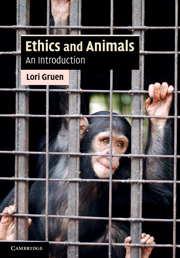2 - The natural and the normative
Published online by Cambridge University Press: 05 June 2012
Summary
Crocodiles are animals who inhabit human nightmares and with good reason. Crocodiles hide below the surface and wait until just the right moment to spring out, toothy mouths ajar, to attack. They are ideal metaphors for the subconscious. They are also truly frightening predators. The late ecofeminist philosopher Val Plumwood had a near fatal encounter with a crocodile and described her terror after enduring a crocodile “death roll.” Her description of the attack is horrifying:
As I pulled the canoe out into the main current, the rain and wind started up again. I had not gone more than five or ten minutes down the channel when, rounding a bend, I saw in midstream what looked like a floating stick – one I did not recall passing on my way up. As the current moved me toward it, the stick developed eyes. A crocodile!…Although I was paddling to miss the crocodile, our paths were strangely convergent. I knew it would be close, but I was totally unprepared for the great blow when it struck the canoe. Again it struck, again and again, now from behind, shuddering the flimsy craft. As I paddled furiously, the blows continued. The unheard of was happening; the canoe was under attack! For the first time, it came to me fully that I was prey. I realized I had to get out of the canoe or risk being capsized.
The bank now presented a high, steep face of slippery mud. The only obvious avenue of escape was a paperbark tree near the muddy bank wall. […]
- Type
- Chapter
- Information
- Ethics and AnimalsAn Introduction, pp. 44 - 75Publisher: Cambridge University PressPrint publication year: 2011



